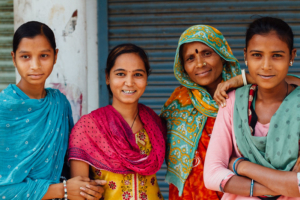How the Global Fund Is Addressing TB in India
 The Global Fund is a nonprofit organization founded in 2002. Since then, it has provided treatment to people with HIV, tuberculosis (TB) and malaria around the world. As of the Summer of 2024, the Fund has invested almost $10 billion in TB prevention and treatment for patients worldwide.
The Global Fund is a nonprofit organization founded in 2002. Since then, it has provided treatment to people with HIV, tuberculosis (TB) and malaria around the world. As of the Summer of 2024, the Fund has invested almost $10 billion in TB prevention and treatment for patients worldwide.
The Global Fund has integrated numerous services into primary health care systems that use innovative technologies, such as mobile health solutions, to improve patient tracking and adherence to treatment. Health professionals will use vans with technology like X-rays and diagnosis kits to provide free health treatments in the most remote locations. The Fund has vastly increased community access to medicines, testing and protective equipment like mosquito nets.
The Global Fund and India’s Close Collaboration
The Global Fund utilizes various strategies to combat TB in India, which reported 1.96 million cases or one-third of TB cases globally in 2021. The Fund has worked closely with the Indian government since 2006 and multiple local nongovernmental organizations (NGOs) to implement effective TB screening, treatment and prevention programs. The government of India, especially Prime Minister Narendra Modi, has shown immense support for the initiative to end TB in India by next year.
Success in Perspective
In 2012, the Indian government implemented a law requiring all diagnosed cases of TB to be reported to public health officials. This policy has successfully reduced the number of unreported cases plaguing the country. One untreated case can spread the disease to 15-20 people in a year. Due to the highly infectious nature of TB, it is crucial to catch cases as early as possible.
Furthermore, through its close collaboration with the Global Fund, India has transitioned from having the highest tuberculosis population to becoming an innovative supporter of global health. In 2019, India hosted the organization’s Sixth Replenishment Preparatory Meeting. Today, thanks to the efforts of the Global Fund, India can support other global health care organizations by serving as a primary source of low-cost pharmaceuticals.
JEET
The Joint Effort to Eliminate TB (JEET), a nonprofit organization, partners with the Global Fund and NGOs in India to improve access to diagnoses and treatments across all communities. JEET works closely with community health professionals and hospitals to promote sustainable solutions that will continue to benefit the population in the future. Indeed, by collaborating with various NGOs, including TB Alert India and the NGO TB Consortium India (NTC), the organization can reach the most at-risk populations and manage cases and outbreaks efficiently.
India is among the countries with the highest number of private health care providers. Between 2018 and 2020, JEET expanded the Patient-Provider Support Agency model in more than 100 districts across nine high-TB-risk states. This model ensures widespread access to TB treatment and patient support in the most vulnerable communities.
Impact of the Global Fund on Poverty
In 2023, the Global Fund provided treatment to more than 2.4 million people in India, improving life expectancy in low-income communities. As of 2022, the Fund has reduced TB-related deaths by 36% since beginning its work in various countries. Ultimately, TB has a profound impact on poverty levels and economic productivity in India, highlighting how successful TB control can lead to healthier communities, reduced health care costs and enhanced economic opportunities for affected populations.
Impacted individuals struggle on different levels throughout day-to-day life, making access to treatment life-changing for families reliant on working income. Furthermore, reducing the impact of TB on health care systems leaves more time, staff and funding to address other health issues in low-income communities.
– Lauren Sellman
Lauren is based in Rochester Hills, MI, USA and focuses on Good News and Global Health for The Borgen Project.
Photo: Flickr
